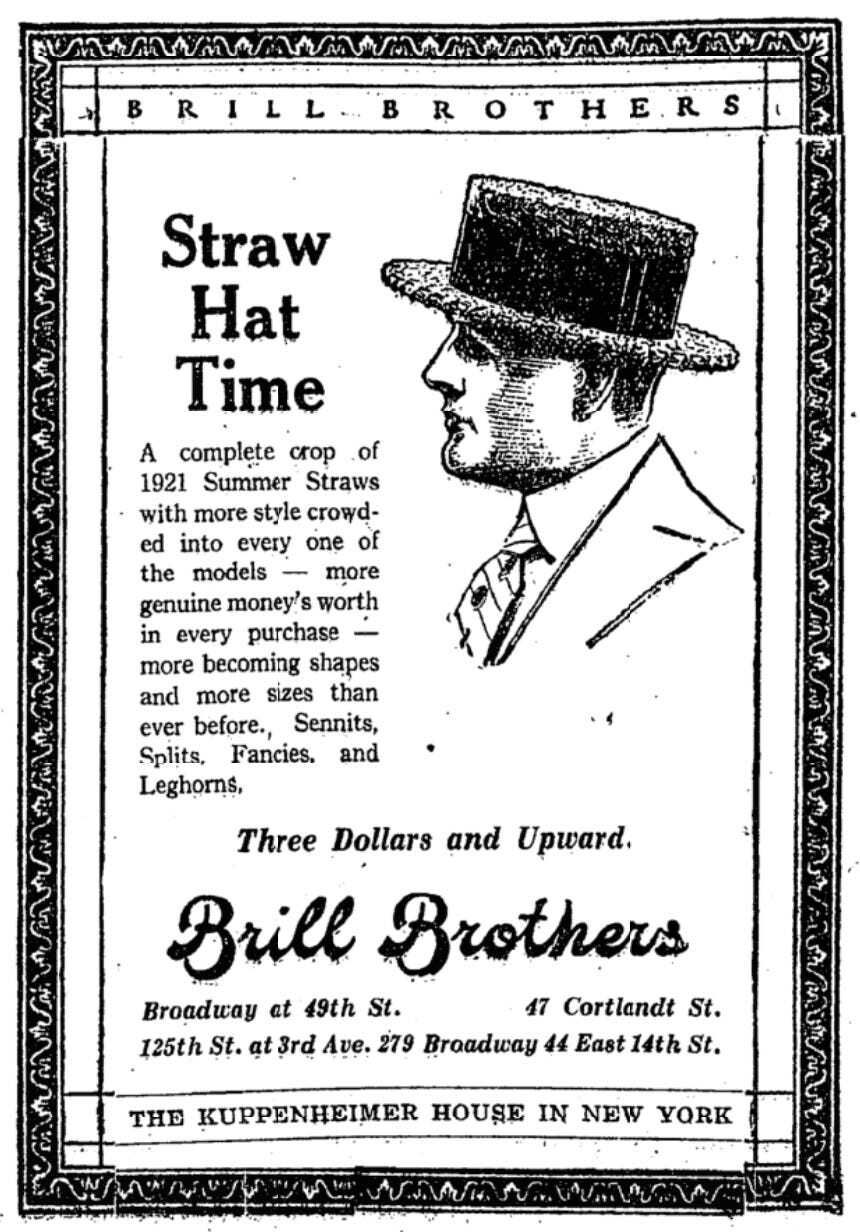- Strange Times
- Posts
- Strange Times 133: 16 Years In Cage
Strange Times 133: 16 Years In Cage
Today we have overheated pennies and cruel injustice. Commit a barbaric atrocity on…
May 13, 1921
Los Angeles housewife Lydia Southard is arrested in Honolulu on charges of poisoning each of her four husbands, a brother-in-law and a step-daughter in order to collect approximately $9,500 insurance.
After being acquitted of her husband’s murder, Clara Smith Hamon takes a payment of $10,000 and certain oil field leases in exchange for renouncing her claim to the rest of her husband’s estate.
While bending to strike a match on his shoe, Weehawken Board of Education President John McFadden slips and falls, causing a fatal skull fracture.
As a sign of his continuing good health, Caruso will attend a ball at the Hotel Vanderbilt for the benefit of Italian immigrant children.
The Weather: Showers today and probably Saturday; no change in temperature; fresh south and southwest winds.

The central theme of this newsletter continues to be that you simply cannot trust a chauffeur.
Arthur Corise of 140 West Fortieth Street and Harry Keith of 523 West 124th Street, chauffeurs, were nonchalantly tossing pennies on the sidewalk last night when Detective Terence Harvey of Inspector Bolan’s staff happened along. He noted that several persons of the passing throngs who darted for the pennies were even more anxious to drop them.
Harvey’s curiosity led him to fall for the lure and he picked up a vagrant penny. He let go hastily and gave first aid treatment to a scorched thumb and forefinger by sticking them in his mouth. Then he noticed Corise and Keith in a nearby doorway overcome with merriment.
“I walked around the block,” the detective explained to Magistrate Silberman later, “and watched these two fellows from a doorway. I saw one of them take out a penny and hold it in his gloved hand over a pocket cigar lighter held by the other fellow, and, then when it was hot, throw it into the crowd of people passing on Broadway. They thought it was a great joke when a man picked it up, but they didn’t think it was much of a joke when I arrested them for disorderly conduct.”
Corise and Keith denied they heated the coins, and said they were only onlookers. “I believe the detective’s story,” said the magistrate, “and I want to tell you fellows that I can’t see anything amusing in your actions.” He fined them $10 each, which they paid.

This is one of the most horrifying stories I’ve ever encountered in this paper, and yet it only gets a few paragraphs’ attention. (Quite a bit less, in fact, than the story about hot pennies.) Perhaps some things are simply too awful for the 1921 Times to grasp. Or maybe people in 1921 really didn’t think it was a big deal to put someone suffering “temporary mental derangement” into a cage.
SARATOGA SPRINGS, N.Y., May 12.—After sixteen years of confinement in a wire cage in her home on a farm near round lake, Miss Bessie Hall, aged 31, was released today for the first time. She left the enclosure to accompany physicians to a hospital for a physical examination.
Riding in an automobile for the first time en route to the hospital, she questioned the physicians about scenes near her home, which were totally unknown to her.
Reports reached the Humane Society recently of the young woman’s incarceration in the wire enclosure. Investigations by the society disclosed that the confinement was ordered by her mother following, it was said, a temporary mental derangement when Miss Hall was fifteen years of age. This method was used by her mother, the society ascertained, to prevent the girl from running away.
Physicians who recently examined Miss Hall at her home reported she was sane, but probably suffering from tuberculosis. After the second examination today, they announced that Miss Hall would, in all probability, be removed to the county tuberculosis sanitarium.




